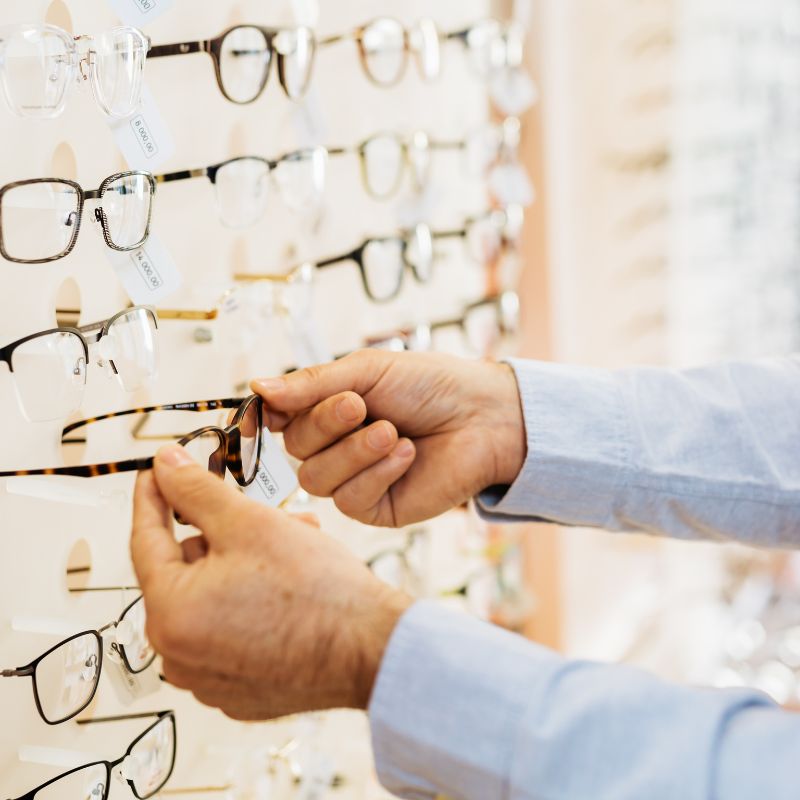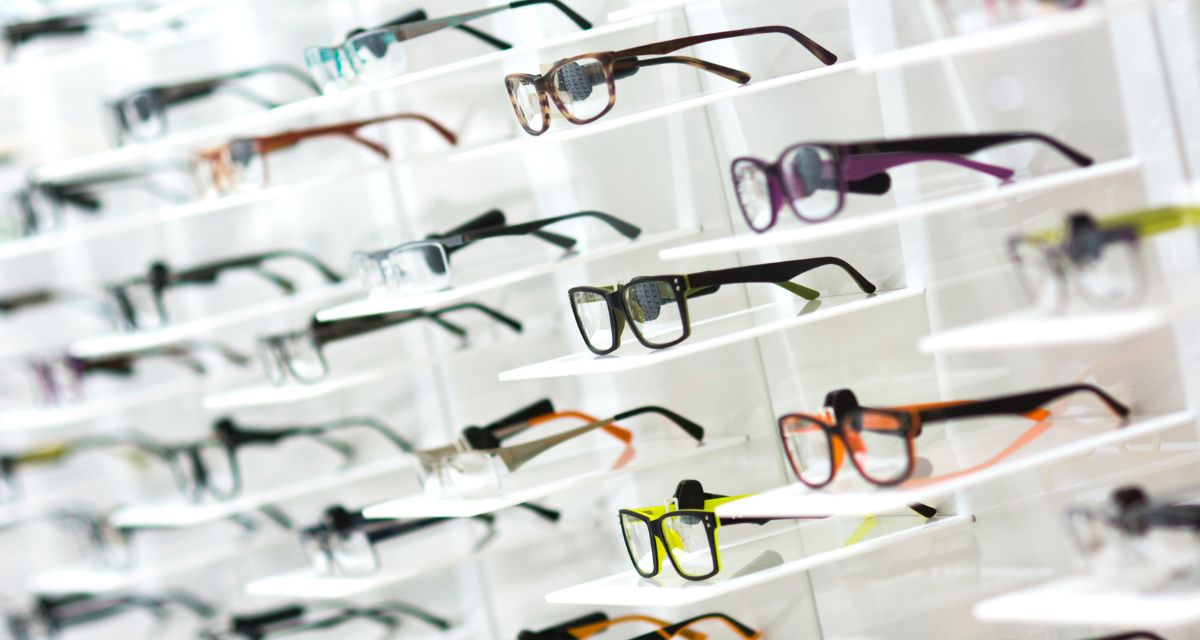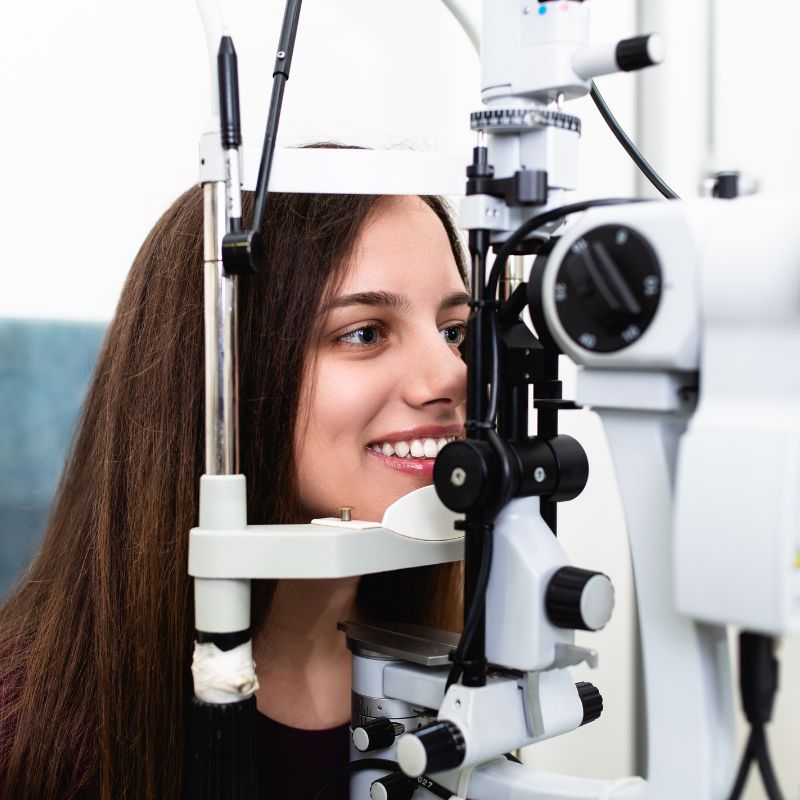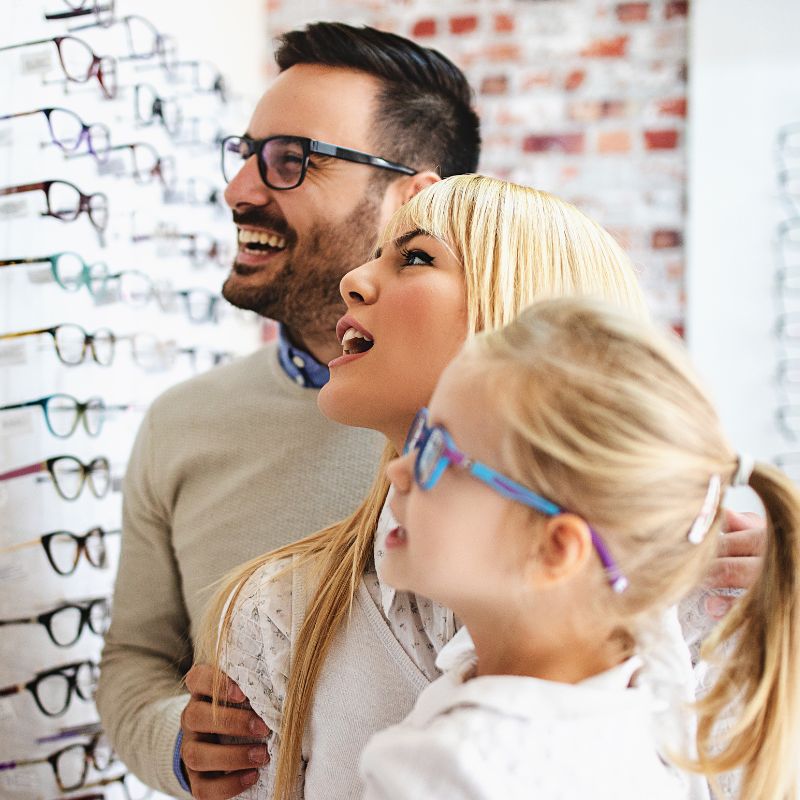Get the Perfect Glasses for Your Vision Defect with Optica Pegaso
Expert Advice to Help You Choose the Right Frames for Your Prescription

Vision Defects and Glasses
At Optica Pegaso, our experts are here to help you choose the perfect glasses for your vision defects, ensuring that you get the best frames for your prescription. We are committed to providing you with all of the information and advice you need to make an informed decision about your glasses. Our experts will help you understand different types of vision defects and which glasses will be best suited to your needs.


Professional Advice
At Optica Pegaso, we are committed to providing you with the ongoing professional advice you need to make an informed decision about your glasses. We only provide expert advice and information, so you can be confident that you are getting the best possible care for your eyes. Our experts are here to help you understand different types of vision defects and which frames will be best suited to your prescription.
Quality Care
At Optica Pegaso, we are committed to providing you with the highest quality care for your eyes. Our experts are here to provide you with the best advice and information about different types of vision defects and which frames will be best suited to your prescription. We are dedicated to helping you make an informed decision about your glasses and ensuring that you get the perfect pair for your vision defects.

When selecting frames for prescription glasses, there are a few important factors to consider such as the material, shape, and size of the frames. Here are some guidelines on how to properly select frames for the strength of your prescription glasses:

Material
The material of the frame is important because it can affect the weight and durability of the glasses. For low to medium prescriptions, lightweight materials such as plastic and titanium are suitable. For higher prescriptions, thicker plastic frames or metal frames are recommended for added support.

Shape
The shape of the frames should complement the shape of your face. For example, if you have a round face, angular or rectangular frames can help balance out the softness of your face. Similarly, if you have a square face, round or oval frames can soften the angles of your face. Additionally, the shape of the frames (aviator, round, square, cat-eye) should allow for proper lens placement and support.

Size
The size of the frames should be proportional to your face and ensure that the lenses fully cover your eyes. Oversized frames may not provide adequate support for higher prescriptions and may cause the lenses to be too heavy. Similarly, frames that are too small can cause the lenses to be too thick and distort your vision.

Style
Ultimately, the frames you choose should be based on your personal preference and style. Take into consideration your lifestyle and daily activities to ensure that the frames you choose are practical and comfortable for your needs.
It is important to consult with an optometrist or optician to ensure that the frames you choose are suitable for your prescription and individual needs. They can provide professional guidance on the best frames for your specific prescription and help you find a comfortable and stylish pair of glasses.
Frequently Asked Questions
What are the benefits of wearing eyeglasses?
There are numerous benefits to wearing eyeglasses. Not only do they correct vision, but they can also reduce eye strain, improve concentration, and enhance visual clarity. Eyeglasses can help protect your eyes from the sun’s harsh rays and reduce glare caused by bright lights. Wearing eyeglasses can also help prevent headaches, fatigue, and eye diseases. Additionally, glasses can be a great fashion accessory that reflects your individual style.
How often should I wear my eyeglasses?
It is recommended that you wear your eyeglasses as often as necessary to ensure that your vision remains clear and crisp. Depending on the prescription strength, those with mild conditions may only need to wear their eyeglasses when engaging in activities that require maximum clarity such as driving or watching television. Those with stronger prescriptions may experience blurriness without their eyeglasses and should wear them most of the time. An optometrist or ophthalmologist can provide further guidance on how often you should wear your eyeglasses based on your prescription.
How do I know if I need to wear eyeglasses?
The best way to determine if you need to wear eyeglasses is by booking an appointment with an optometrist or ophthalmologist. They will conduct a comprehensive eye exam and assess your vision, focusing on things such as your ability to identify colors, read text at various distances and angles, and detect differences in contrast. If a vision defect is detected, they will provide guidance on the best corrective eyewear for your needs. It’s important to have regular eye exams because even minor changes in vision can significantly impact your daily life.
What type of eyeglasses should I choose?
When choosing eyeglasses, it is important to consider materials, shape, size, and your personal preferences. Materials such as plastic or metal are suitable for higher prescriptions and will provide extra support. The shape of the frames should complement the shape of your face and allow for proper lens placement and support. The size of the frames should also be proportional to your face and ensure that the lenses fully cover your eyes. Ultimately, you should choose eyeglasses based on your personal preference and style. An optometrist or ophthalmologist can provide further guidance on finding a comfortable and stylish pair of glasses.
How do I care for my eyeglasses?
Taking care of your eyeglasses is important for maintaining the quality of your vision and ensuring the longevity of your eyewear. To keep your glasses clean, use a mild soap and warm water to remove any dirt or debris from the lenses and frames. Ensure that you rinse them off thoroughly with lukewarm water, as hot or cold water can cause damage. Allow your glasses to air-dry or use a lint-free cloth to wipe them down. Additionally, it is important to store your glasses in a safe place when not in use to prevent scratches or damage. Lastly, keep an eye on the fit of your eyeglasses and any wear and tear that may occur from everyday use. If your eyeglasses become loose or uncomfortable, visit an optometrist or ophthalmologist for a refitting.
By following these steps, you can ensure that your glasses stay in good condition and last longer. With the right care, you can enjoy perfect vision and stylish frames for years to come!
How often should I replace my eyeglasses?
It is recommended that you replace your eyeglasses every two years to ensure maximum clarity and comfort. If your prescription has changed since your last purchase, you should upgrade your glasses immediately. Additionally, if you notice any signs of wear and tear such as scratches or looseness, it is important to seek an optometrist’s advice on when to replace your glasses. Over time, lenses can become distorted or less effective in providing clear vision, so keeping up with regular maintenance is key for preserving your vision.
By following these guidelines, you can make sure that you always have the best eyewear for your needs and enjoy long-lasting clarity of vision!
Can I wear contact lenses if I have astigmatism?
Yes, it is possible to wear contact lenses if you have astigmatism. Astigmatism is a common eye condition that causes blurred vision due to an irregularly shaped cornea or lens. However, with the right lenses, it can be corrected and improved. Contact lenses are available in different designs and materials specifically designed for people with astigmatism. They offer the same advantages of regular contact lenses but provide more precise correction for astigmatic vision. Your eye doctor will be able to recommend the best type of lens and provide guidance on proper care and maintenance. By following their advice, you can enjoy comfortable, clear vision with contact lenses!
How do I clean my eyeglasses?
In order to clean your eyeglasses, it is important to use a mild soap and warm water. Simply dunk the lenses and frames in the soapy solution for a few minutes before rinsing them off with lukewarm water. Be sure not to use hot or cold water as this can damage the lens coatings. Afterwards, you can either allow your glasses to air-dry or gently wipe them down with a lint-free cloth. Additionally, avoid touching the lenses directly with your fingers as natural oils from skin could leave smudges on the surface of the lens. Following these steps will help ensure that your eyeglasses remain clear and in optimal condition!
What are the different types of eyeglass lenses?
There are a variety of different types of eyeglass lenses available to suit every individual’s needs. Single vision lenses are the most common type of eyeglass lenses and correct for one field of vision; either distance or nearsightedness. Progressive lenses, also known as multifocal lenses, provide multiple fields of focus and can correct both nearsightedness and farsightedness. Reading glasses are designed with a single focus point to improve close-up vision, while bifocal lenses consist of two fields of vision that can correct for near and far objects. Lastly, high index lenses are thinner than regular lenses but provide the same level of correction as thicker lenses. With such a wide selection, you can find the right lenses to meet your vision needs and keep your eyes comfortable!
What are the different types of eyeglass frames?
Eyeglass frames come in a variety of types, shapes, sizes and materials. Metal frames are usually made from titanium or stainless steel and are lightweight yet strong. Plastic frames are durable and flexible, making them ideal for active lifestyles. Wood frames have become increasingly popular due to their unique appearance and natural properties. Rimless frames consist of only the lenses without any frame material, while semi-rimless frames have a small rim around the edges of the lenses. With so many options available, you’re sure to find a pair of frames that meets your style and comfort needs!
How do I choose the right eyeglass frames for my face?
Choosing the right eyeglass frames for your face is essential to finding a pair of glasses that you will be comfortable wearing. Different face shapes are suited to different types and styles of frames, so it is important to consider your facial features when selecting the perfect pair of glasses. The best way to determine your face shape is by taking a look at your forehead, cheeks and jaw line. If your face is longer than it is wide with a prominent jaw line, you may suit an angular frame such as a square or rectangular shape. However, if you have softer features with a rounder shape, then opt for frames that are oval or curved in design. Matching the right frames to your face will ensure that you look and feel great while wearing them!
How can I customize my eyeglasses?
You can customize your eyeglasses with special lenses, frames, coatings and tints. Special lenses such as progressive or bifocal lenses are beneficial for those with astigmatism, presbyopia and other eye conditions. Frames can be selected based on the shape of your face for a more flattering look. Additionally, special coatings and tints can be applied to reduce glare, protect against UV rays and improve vision in certain lighting conditions. You should consult with an optometrist or optician to discuss your individual needs and determine the best customization options for you.
What are the most recommended brands of eyeglass frames?
When it comes to eyeglass frames, there are a wide variety of brands available. Many people prefer designer brands such as Ray-Ban, Oakley, and Prada. These are popular choices because they combine style and quality with affordability. Other popular brands include Michael Kors, Tory Burch, Gucci and Versace. Each of these brands offers unique styles and designs to meet individual needs.
Each of these companies provides a wide selection of frames for women, men and unisex.
For those looking for more affordable eyeglasses, there are many other brands that provide quality frames at lower prices. Brands like Foster Grant, Kenneth Cole, and Bolon offer stylish yet affordable frames. Many of these brands use modern technologies such as plastic or titanium frames to create strong and lightweight eyeglasses.
Whether you are looking for designer frames or more affordable ones, be sure to find a pair that fits your face shape and lifestyle. It’s also important to consider the lenses that come with the frame as they can have an effect on vision quality and comfort. By researching different brands and styles, you